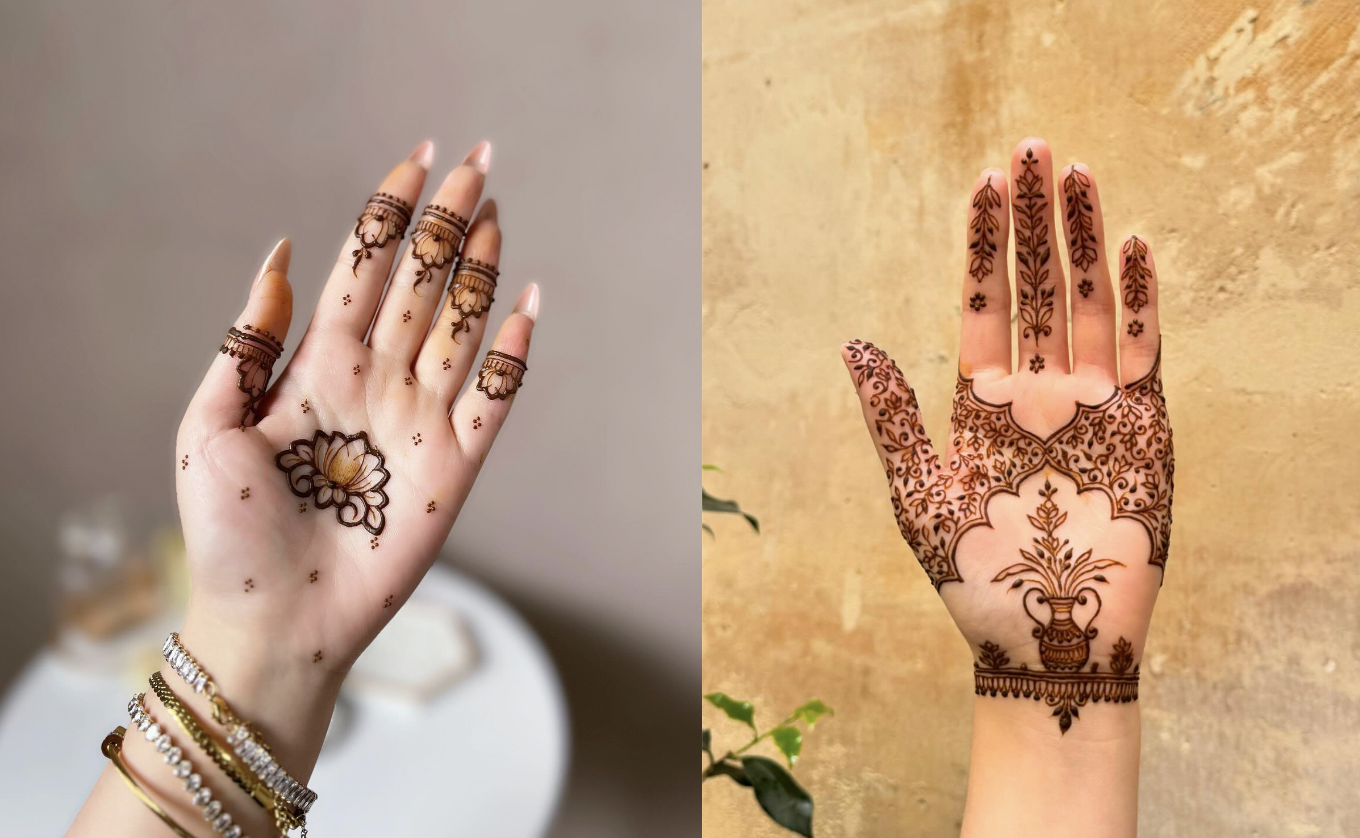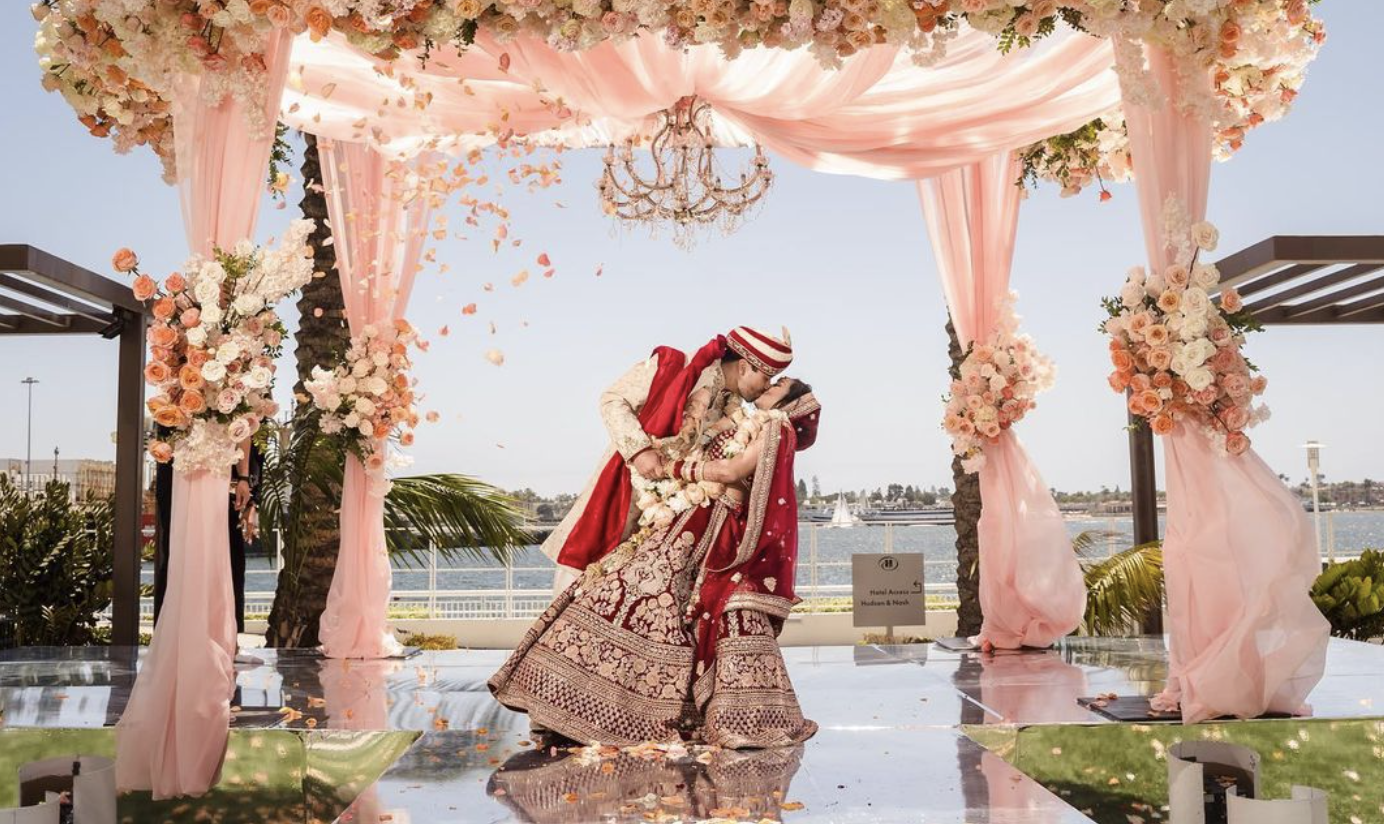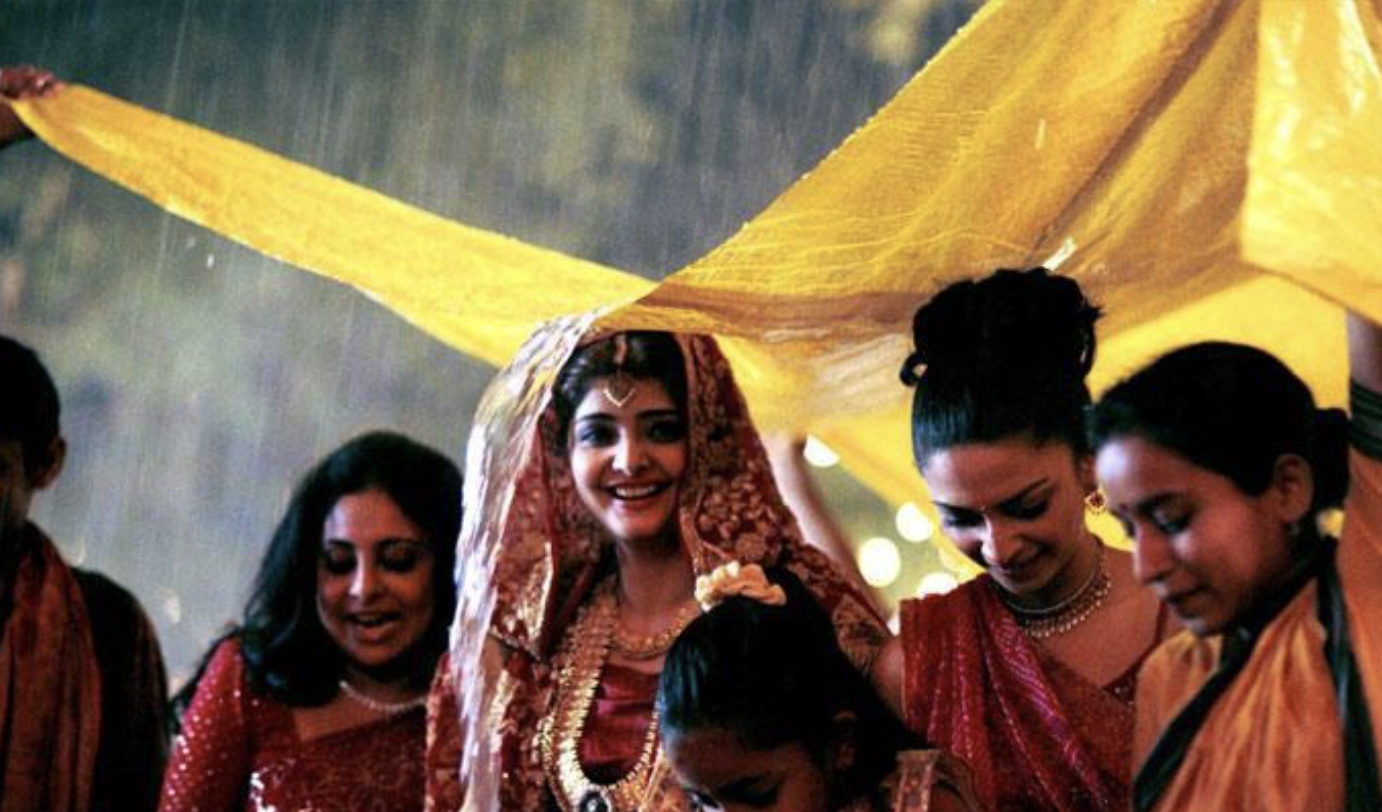Why Wedding Insurance Is Essential For Every Couple
Ideas and Inspiration SachiWedding insurance is a specialised form of event insurance that provides financial protection and peace of mind for couples planning their big day. It covers unforeseen circumstances and unexpected events that can disrupt or cancel a wedding, such as extreme weather, vendor no-shows, illness or injury to key individuals, or venue issues. In essence, wedding insurance safeguards the significant financial investment and emotional preparation that goes into a wedding.
Wedding insurance also covers personal liability, which is crucial when considering the potential for accidents or property damage during the event. It can even extend to liquor liability in case alcohol-related incidents occur. With guests and vendors involved, the risk of accidents or mishaps is real, making liability coverage a prudent choice.
What is Wedding Insurance?

Source: Namrata
Wedding insurance is a specialized insurance product designed to protect couples from financial losses and unforeseen challenges when planning and hosting their wedding day. It provides coverage for a range of situations that could disrupt or impact the event, giving couples peace of mind as they prepare for their special day.
There are several types of wedding insurance coverage, each addressing different aspects of the wedding:
1. Cancellation/Postponement Insurance
This is the most common type of wedding insurance. It reimburses the couple for non-recoverable expenses if they have to cancel or postpone the wedding due to unforeseen circumstances. Covered reasons often include illness or injury to the bride, groom, or key family members, extreme weather conditions, or venue-related issues like bankruptcy or damage.
2. Liability Insurance
Wedding Liability insurance covers bodily injury or property damage that occurs during the event. It’s essential for protecting the couple if a guest or vendor is injured, or if the wedding party accidentally damages the venue. Some policies may also include liquor liability coverage, protecting against alcohol-related incidents.
3. Vendor Failure or Loss of Deposits
This type of insurance safeguards couples if a vendor goes out of business or fails to provide contracted services. It can cover lost deposits or additional expenses incurred to secure a replacement vendor.
4. Gifts and Personal Property
This coverage protects against the loss, theft, or damage to wedding gifts, wedding attire, and personal property, such as rings and decorations.
5. Event Liability Insurance
While similar to wedding liability insurance, event liability insurance is suitable for non-wedding events like parties and receptions. It covers the same risks, including accidents and property damage.
6. Additional Expenses
This coverage helps with unexpected expenses incurred due to a covered loss. For example, if the wedding has to be rescheduled due to bad weather, this insurance can cover extra costs for securing a new date or location.
7. Travel Insurance
For destination weddings, travel insurance can be essential, covering travel-related expenses in case of trip cancellations, delays, or emergencies.
Why Do You Need Wedding Insurance?
Wedding insurance is a critical investment for couples preparing to tie the knot, offering invaluable protection and peace of mind for one of life’s most significant events. Here are some compelling reasons why you need wedding insurance:
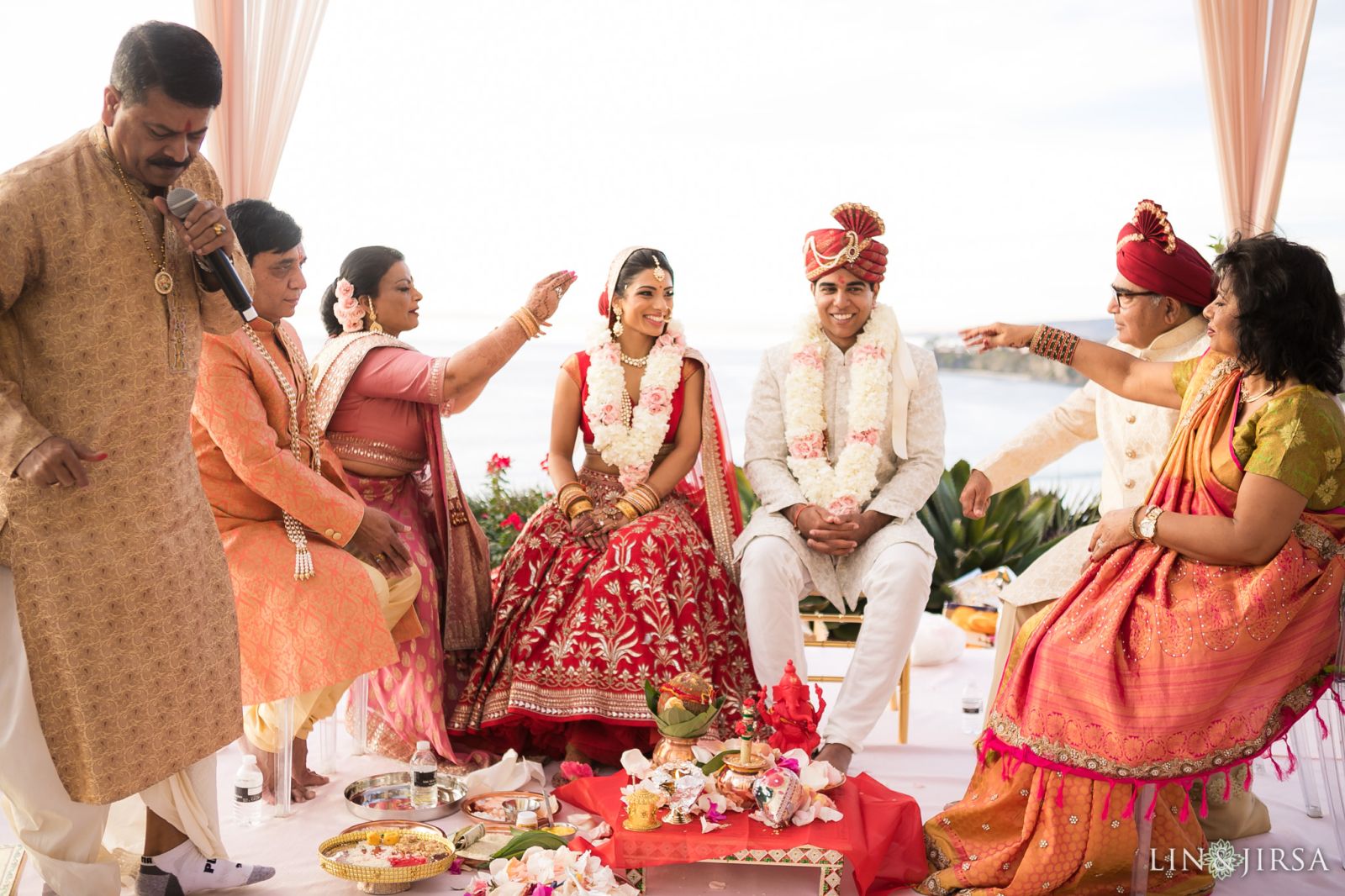
Source: Lin & Jirsa Photography
1. Protecting Your Investment: Weddings are substantial financial investments. Couples spend considerable sums on venues, catering, photography, attire, and more. Wedding insurance safeguards this investment by reimbursing non-recoverable expenses if the event is canceled or postponed due to covered reasons, preventing couples from bearing the full financial burden of a disrupted wedding.
Also Read: Top 33 Wedding Planning Tips and Tricks You Must Know About
2. Unforeseen Circumstances: Life is unpredictable, and unforeseen circumstances can jeopardize wedding plans. Natural disasters, like hurricanes or wildfires, can force a change of venue or date. Vendor no-shows or bankruptcies can leave couples scrambling to find replacements. Moreover, unexpected illnesses or injuries to key individuals can necessitate postponement. Wedding insurance provides a safety net in such situations, ensuring that couples are not left to handle these crises alone.
3. Peace of Mind on Your Big Day: Wedding planning can be a stressful and emotionally charged process. Having insurance in place offers peace of mind. It allows couples to focus on the joy of the occasion rather than worrying about what might go wrong. Knowing that financial protection is in place, couples can celebrate their day with confidence and happiness.
4. Liability Coverage: Wedding insurance also includes liability coverage, which is crucial for any event with guests and vendors. Accidents can happen, and property damage is a possibility. This coverage protects the couple from potential lawsuits and financial liabilities related to accidents or incidents that occur during the wedding.
5. Vendor and Personal Property Protection: Wedding insurance can also cover vendor failures, ensuring that lost deposits or additional expenses for securing replacements are compensated. It can protect against the loss, theft, or damage to wedding gifts, personal property, and important items like wedding attire and rings.
What Does Wedding Insurance Cover?
Wedding insurance provides comprehensive coverage to protect couples from a wide range of unexpected and uncontrollable events that can disrupt their wedding plans. Here’s a breakdown of what wedding insurance typically covers:

Source: Whites Ferry Manor
1. Cancellation or Postponement: This is the most common and essential coverage. It reimburses couples for non-recoverable expenses if they must cancel or postpone the wedding due to unforeseen circumstances. Covered reasons often include severe weather (e.g., hurricanes, snowstorms), illness or injury to the bride, groom, or close family members, vendor-related issues (such as bankruptcy or no-shows), or venue problems.
2. Event Photographs and Videos: Wedding photography and videography are significant investments. If the hired professionals fail to deliver, experience equipment issues, or suffer a data loss, this coverage can help reimburse the couple for the costs associated with recreating or retaking photos and videos.
3. Wedding Attire: Wedding attire, including bridal gowns, tuxedos, and bridesmaids’ dresses, can be costly and hold immense sentimental value. Wedding insurance covers the repair or replacement of these items in the event of damage, loss, or theft.
4. Gifts: Wedding gifts are often valuable, and their loss, theft, or damage can be financially devastating. Wedding insurance provides coverage for stolen or damaged gifts, ensuring that couples are not left empty-handed in the event of such misfortunes.
5. Personal Liability: This coverage safeguards the couple against potential lawsuits arising from accidents or property damage during the event. It’s essential in case a guest or vendor is injured, or if accidental property damage occurs during the wedding.
6. Additional Optional Coverages: Some couples may opt for additional coverages to further protect their investment and personal belongings. These can include:
7. Jewelry Coverage: For expensive wedding and engagement rings, this coverage protects against theft or damage.
8. Honeymoon Coverage: This extends insurance protection to the honeymoon, covering cancellations, delays, or emergencies related to the post-wedding trip.
Also Read: The Ultimate Honeymoon Packing Checklist Every Couple Needs
9. Event Liability Coverage: Similar to personal liability, this is suitable for non-wedding events and covers accidents or property damage.
What Doesn't The Wedding Insurance Cover?
It’s crucial to carefully review the terms and conditions of your wedding insurance policy to fully understand what is and isn’t covered. While wedding insurance can offer peace of mind and financial protection for unforeseen disruptions, it has limitations, and couples should make informed decisions when purchasing policies and planning their weddings.
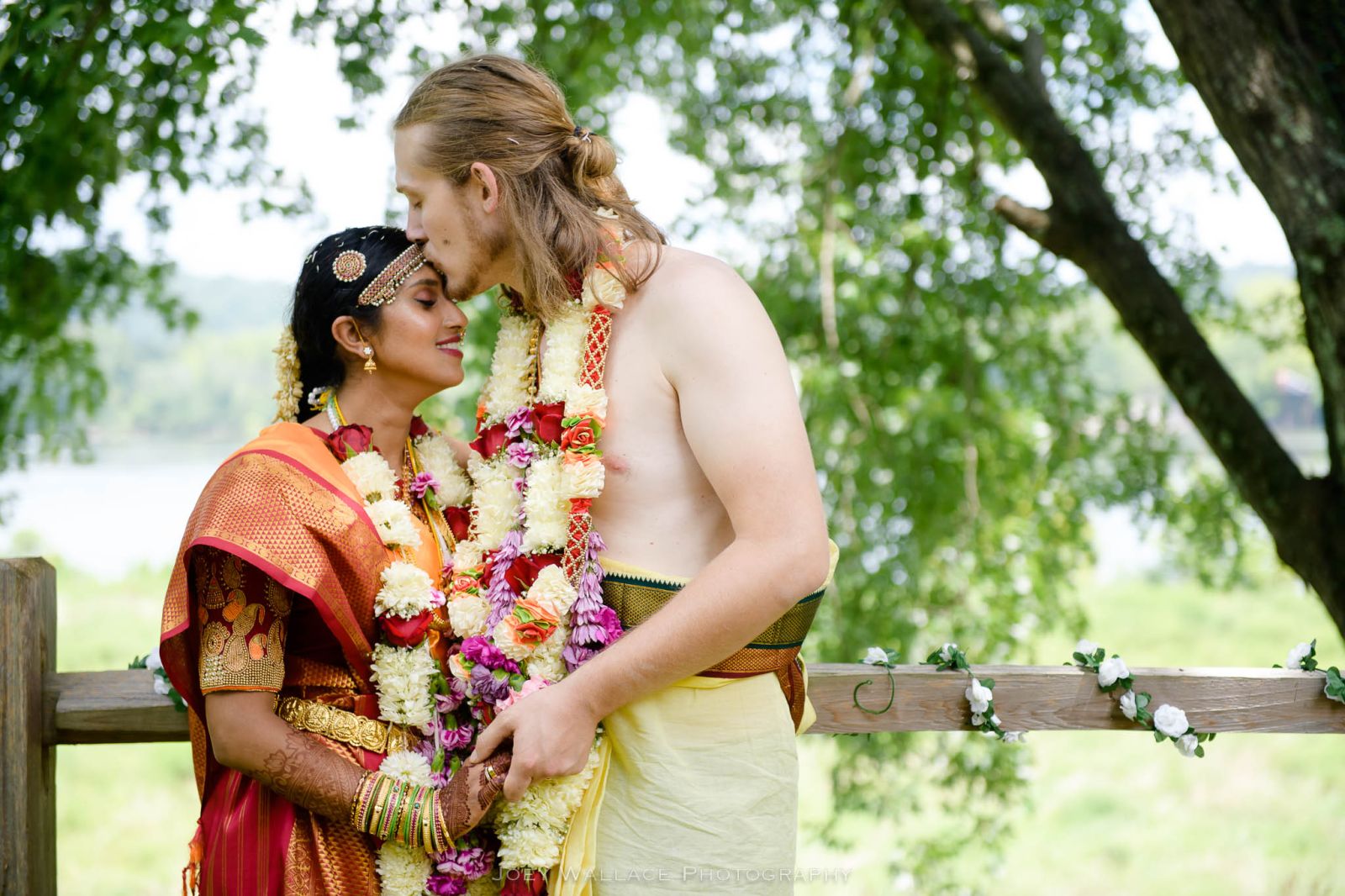
Source: Joey Wallace Photography
Here are certain situations that are not covered under the insurance:
1. Change of Heart or Cold Feet: Wedding insurance does not provide coverage if either the bride or groom has a change of heart and decides not to proceed with the wedding. Similarly, cold feet or last-minute jitters are not covered. These are considered personal decisions and emotional matters rather than unforeseen circumstances or events beyond one’s control.
2. Situations Known Before Purchasing the Policy: Wedding insurance is designed to protect against unforeseen events. If a couple is aware of a potential issue before purchasing the policy, it is typically not covered. For example, if a couple is already aware of a vendor’s financial instability or venue issues, they cannot later claim coverage for these known issues.
3. Unlicensed Vendors: If couples choose to work with vendors who do not possess the necessary licenses or permits required by local authorities, any issues that arise due to this choice may not be covered. Wedding insurance generally expects couples to make reasonable and responsible vendor selections.
4. Personal Disagreements: Disagreements or disputes with vendors or guests that arise from personal interactions are generally not covered. Wedding insurance is meant to address unexpected and uncontrollable events, not interpersonal conflicts.
5. Acts of Terrorism or War: Some wedding insurance policies may exclude coverage for acts of terrorism or war. These events are typically considered as “force majeure” and may not be covered unless specified differently in the policy.
6. Pre-existing Medical Conditions: If an individual with a pre-existing medical condition becomes ill and the wedding needs to be canceled or postponed, it might not be covered. Wedding insurance is generally designed to cover unforeseen medical emergencies rather than known health issues.
How to Choose the Right Wedding Insurance Policy
Selecting the right wedding insurance policy is a crucial step in ensuring your special day proceeds smoothly and is protected from unforeseen disruptions. Here’s a guide on how to make this important choice:
.jpg)
Source: Karishma & Shay's Dreamy Indian Wedding In Mexico With The Most Stunning Outfits
1. Assessing Your Wedding’s Specific Needs: Begin by assessing the unique aspects of your wedding. Consider the location, season, and the overall budget you’ve allocated. This evaluation will help you determine the type and amount of coverage you require. For instance, a destination wedding may necessitate more extensive coverage, while a local event might have different risk factors.
2. Comparing Different Providers and Policies: Research and compare wedding insurance providers. Seek recommendations from recently married friends or wedding professionals. Online reviews and ratings can also provide valuable insights. Compare the cost, coverage limits, and deductibles of various policies. Look for providers with experience in wedding insurance and a strong track record of helping couples in need.
3. Reading the Fine Print: Carefully review the policy details, including any exclusions, deductibles, and coverage limits. Pay close attention to the following:
4. Exclusions: Understand what the policy does not cover. Common exclusions may include known issues before policy purchase, change of heart or cold feet, and acts of terrorism or war. Ensure the policy aligns with your specific concerns.
5. Deductibles: Determine the deductible amount, which is the portion you’re responsible for paying in the event of a claim. Higher deductibles may result in lower premiums, but you’ll need to cover more costs out of pocket.
6. Coverage Limits: Examine the maximum amount the policy will pay out in different categories, such as cancellation or liability. Make sure these limits match your budget and expectations.
7. Customizing the Policy: Some insurance providers allow you to customize your policy to address specific needs. If your wedding involves particularly expensive items like jewelry or a lavish honeymoon, consider additional coverage for these assets.
8. Reviewing Vendor Requirements: Check whether your vendors, such as the venue or catering service, have any insurance requirements. Your chosen vendors may influence the type of policy you need.
9. Customer Support and Claims Process: Assess the quality of customer support and the ease of the claims process. Should you need to file a claim, a responsive and efficient insurer can make a significant difference in a stressful situation.
10. Budget Considerations: Determine a budget for wedding insurance. Balance the cost of the policy with your overall wedding budget. Remember that the investment in wedding insurance can provide peace of mind and protect your significant financial commitment.
Cost of Wedding Insurance
The cost of wedding insurance can vary significantly depending on several factors. It’s essential to understand what influences the price, explore average cost ranges, and learn tips for securing the best deal.
.jpg)
Source: Nandita & Anurag's Picturesque Indian Wedding In San Diego
Factors Affecting the Price:
1. Location
The location of your wedding plays a substantial role in determining the cost of insurance. Weddings in high-cost metropolitan areas may have higher premiums due to increased risks and expenses.
2. Size of the Wedding
The number of guests and the scale of your wedding can impact the cost. Larger weddings with more attendees may have higher premiums due to the potential for more significant liability or expenses.
3. Amount of Coverage
The extent of coverage you choose greatly affects the cost. Policies with higher coverage limits, additional riders for valuable items like jewelry, or broader protection will come with higher premiums.
4. Average Cost Ranges
The cost of wedding insurance can range from a few hundred dollars to over a thousand dollars. On average, policies typically cost between $150 to $600, depending on the factors mentioned above. Destination weddings, elaborate ceremonies, and expensive venues may push the cost toward the higher end of the range.
Tips for Getting the Best Deal for Wedding Insurance
.jpg)
Source: Dhara & Kevin's Interfaith Beach Wedding In Cancun
1. Shop Around
Obtain quotes from multiple insurance providers. Different insurers offer various policy options and pricing. Comparing multiple quotes allows you to find the best value for your needs.
2. Customize Your Coverage
Tailor your policy to your specific requirements. You don’t have to buy more coverage than you need. Assess your wedding’s unique risks and adjust your policy accordingly.
3. Bundle with Other Insurance
Some insurers offer discounts if you bundle wedding insurance with other policies, such as homeowners or renters insurance. Inquire about potential discounts when seeking quotes.
4. Plan Ahead
Purchase wedding insurance well in advance. The earlier you buy, the more cost-effective your policy may be. Last-minute policies can be more expensive.
5. Read the Fine Print
Ensure you fully understand the terms and conditions of your policy, including deductibles, coverage limits, and any exclusions. This knowledge can help you make informed decisions and prevent unexpected costs.
6. Consider a Liability-Only Policy
If your primary concern is personal liability coverage, you can opt for a liability-only policy, which may be more budget-friendly.
How to Make a Wedding Insurance Claim
If something goes wrong with your wedding plans and you need to make a claim on your wedding insurance policy, here are the typical steps to follow:

Source: Manvir Nijjar-Dhanjal
1. Contact Your Insurer
Notify your insurance provider as soon as you become aware of the issue that could lead to a claim. They will guide you through the process and provide necessary instructions.
2. Complete Claim Forms
Your insurer will provide you with claim forms to fill out. Be thorough and accurate when providing details about the incident or circumstances leading to the claim.
3. Gather Documentation
Collect all required documentation to support your claim. This may include receipts, contracts, invoices, and any written communication related to the issue. Ensure you have a clear record of expenses and losses.
4. Submit the Claim
Once you’ve completed the claim forms and gathered the necessary documentation, submit your claim to the insurance company. Follow the submission process as outlined by your insurer.
5. Cooperate with the Adjuster
Your insurer may assign an adjuster to assess your claim. Be cooperative and provide any additional information or documentation they request promptly.
6. Timeline for Claim Processing
The timeline for claim processing can vary depending on your insurer and the complexity of the claim. In some cases, simple claims may be processed in a matter of weeks, while more complex claims could take several months. Your insurer should provide an estimated timeline.
7. Follow Up
Don’t hesitate to follow up with your insurer if you don’t receive updates within the estimated processing time. It’s essential to stay in touch to ensure your claim is handled promptly.
Remember that the specific requirements for making a claim, as well as the timeline for processing, may vary among insurance providers. Be sure to carefully read your policy documentation and discuss any questions or concerns with your insurer to ensure a smooth and efficient claims process.
Conclusion
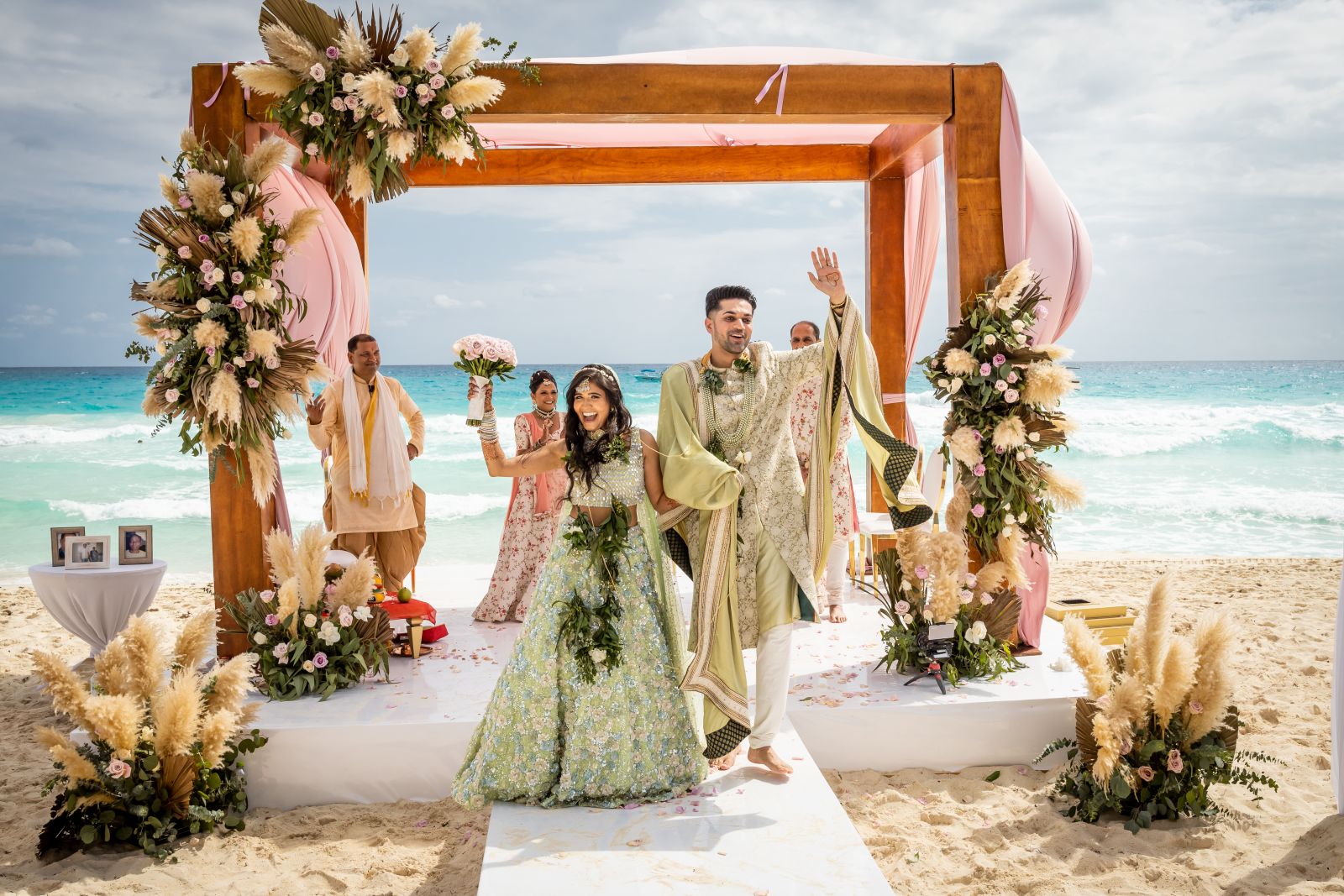
Source: Breathtaking Destination Wedding In Cancun: Damini & Moulik
From unpredictable weather to vendor no-shows, illness, or even accidents, wedding insurance ensures that your wedding day proceeds as smoothly as possible, regardless of the unexpected hurdles that may arise. It’s a valuable tool that minimizes financial risk and stress, allowing you to focus on the celebration of love and commitment.
However, like any insurance, wedding policies have their costs and limitations. It’s essential to weigh the pros and cons carefully, considering your specific wedding circumstances and needs. Research various providers, compare policies, and read the fine print to make an informed decision.
In the end, while no one wants to imagine their special day marred by unforeseen issues, having wedding insurance provides a sensible layer of protection, ensuring that your wedding story remains one of joy, love, and unforgettable memories. It’s an investment in safeguarding your happiness and the realization of your dream wedding.
Proof Read & Photos Sourced By: Neha Garg Ahuja


